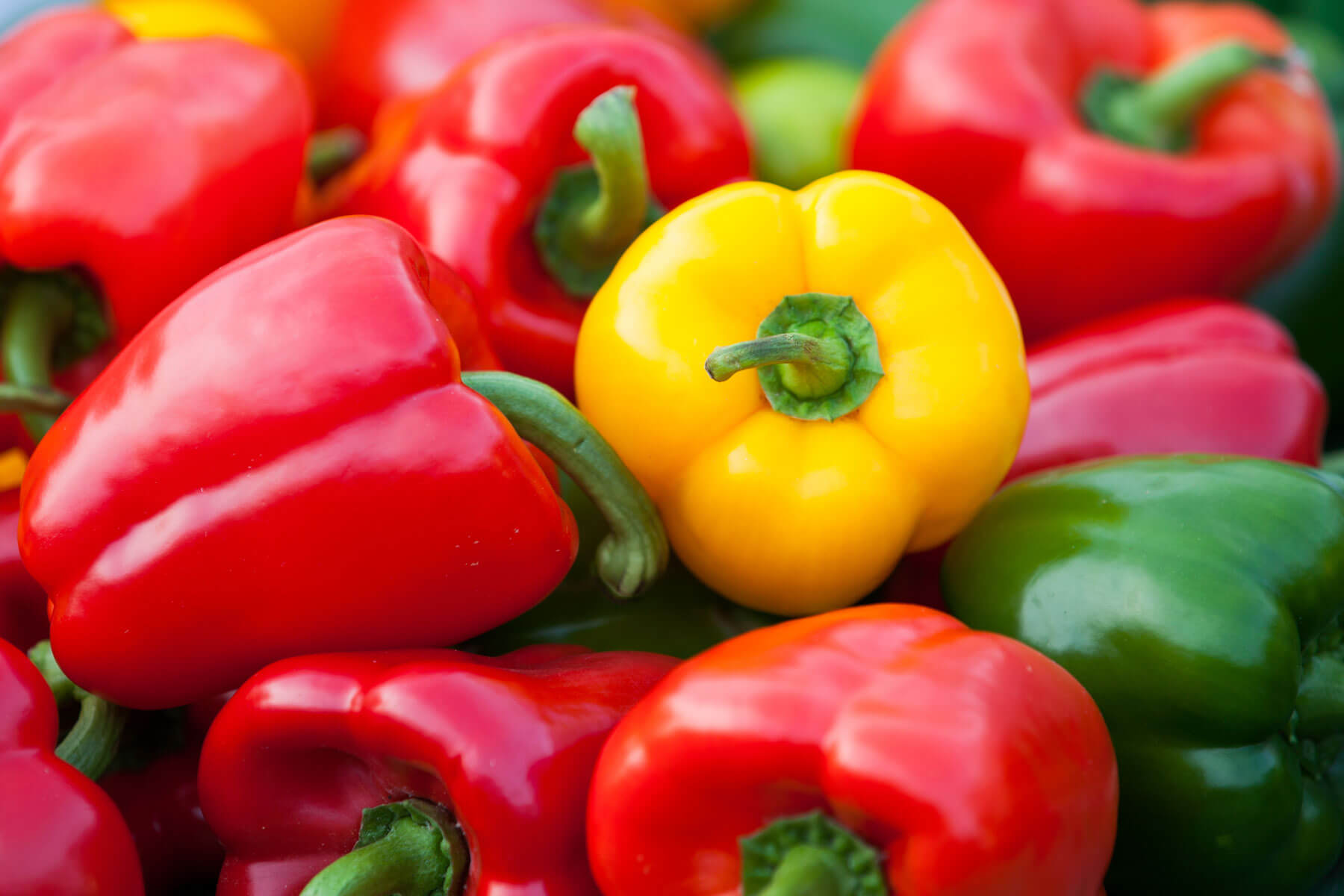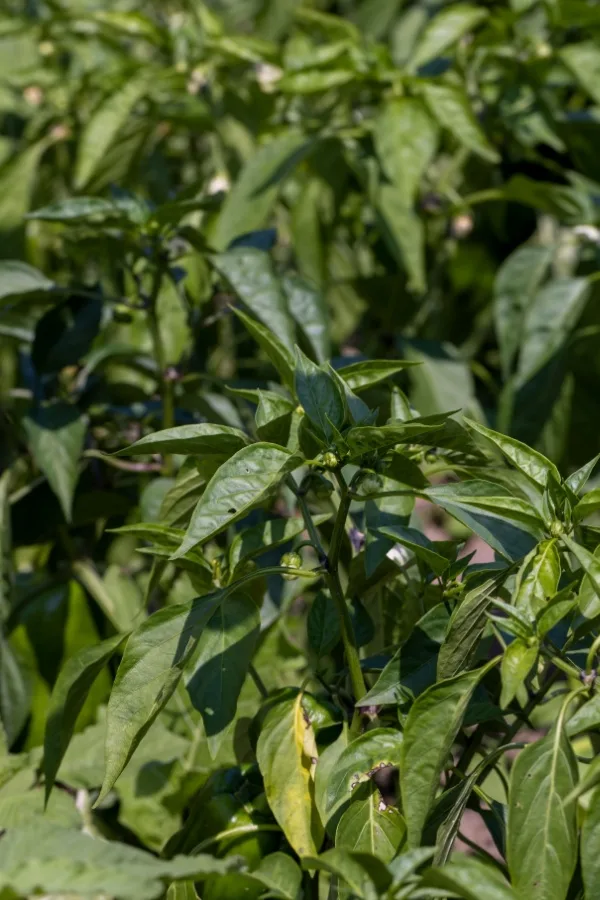Best Fertilizers for Peppers: A Comprehensive Guide to Boost Your Harvest
Best Fertilizers for Peppers: A Comprehensive Guide to Boost Your Harvest
Blog Article
Organic Vs. Synthetic Fertilizers: Which Is Best for Nurturing Healthy And Balanced Pepper Plants?
In the world of nurturing healthy and balanced pepper plants, the selection between artificial and organic fertilizers stands as a crucial choice with significant implications. While both alternatives goal to offer vital nutrients to support plant growth, the subtleties of their influence on the soil, plant health, and the setting trigger a discussion that mirrors throughout the gardening area. Comprehending the distinct benefits and potential mistakes of each fertilizer kind is critical for pepper cultivators looking for to enhance their yields while preserving a sustainable and eco-conscious approach.
Advantages of Organic Plant Foods
Organic plant foods provide a sustainable and environmentally-friendly technique to beneficial pepper plants, giving vital nutrients without the usage of artificial chemicals. These natural fertilizers are originated from organic resources such as compost, manure, bone dish, and seaweed, advertising dirt health and wellness and biodiversity. Unlike artificial fertilizers, natural alternatives release nutrients gradually, making sure a well balanced and steady supply for pepper plants to prosper.
One significant benefit of natural fertilizers is their capability to boost soil structure and water retention. By boosting soil health, organic plant foods promote valuable microbial activity, which helps in nutrient uptake by pepper plants. In addition, organic fertilizers minimize the threat of chemical run-off, protecting water resources from air pollution and protecting the atmosphere.
In addition, organic fertilizers add to lasting dirt fertility by promoting the growth of helpful dirt organisms. These organisms assist damage down raw material, launching nutrients in a kind that is easily available to pepper plants. best fertilizers for peppers. By promoting a healthy and balanced dirt community, organic fertilizers support sustainable pepper growing methods that profit both plants and the atmosphere
Disadvantages of Artificial Fertilizers
Artificial plant foods, in contrast to their natural counterparts, present different disadvantages when made use of to nurture pepper plants, impacting both plant wellness and environmental sustainability. One major downside of synthetic plant foods is their tendency to leach nutrients from the soil swiftly.
Additionally, the overuse of synthetic plant foods can contribute to water air pollution. Excess fertilizers not soaked up by plants can wash away right into water bodies, causing eutrophication, where algae flowers deplete oxygen degrees in the water, harming marine life. Artificial plant foods are usually obtained from non-renewable resources, such as fossil gas, adding to carbon discharges and ecological degradation during their manufacturing.
Nutrient Absorption Comparison
Efficient nutrient absorption plays an essential duty in the overall health and wellness and development of pepper plants. When comparing artificial and organic fertilizers in regards to nutrient absorption, natural fertilizers have the advantage of supplying a much more well balanced and slow-release resource of nutrients (best fertilizers for peppers). Organic fertilizers include a selection of macro and trace elements that are not only helpful for the plants yet also promote healthy and balanced soil microbial activity, which helps in nutrient uptake. On the various other hand, artificial plant foods often offer a fast launch of nutrients, which can bring about seeping and runoff, resulting in reduced nutrient absorption prices by the plants.
In addition, natural plant foods boost dirt framework and water retention ability, permitting pepper plants to accessibility nutrients a lot more successfully. This better soil high quality promotes origin growth, enabling far better nutrient absorption. Artificial plant foods, although at first increasing plant growth due to their high nutrient concentrations, might impede long-term nutrient absorption by degrading dirt wellness gradually.
Environmental Impact Factors To Consider

On the other hand, artificial fertilizers, although typically even more instantly readily available and focused to plants, can have detrimental results on the environment otherwise applied correctly (best fertilizers for peppers). Their manufacturing requires high power inputs, resulting in greenhouse gas exhausts and contributing to environment change. The drainage of excess synthetic plant foods can contaminate water sources, leading to eutrophication and damaging aquatic environments.
Best Fertilizer Practices for Peppers
When fertilizing pepper plants, enhancing nutrient uptake and decreasing ecological impact are essential considerations. To accomplish this, it is crucial to follow best fertilizer methods customized to the certain requirements of pepper plants. One vital technique is to execute a dirt examination prior to using any kind of plant foods. This examination can establish the pH degree of the dirt and determine any type of nutrient deficiencies, guiding you in selecting the most suitable plant food formulation.
An additional crucial method is to fertilize pepper plants at the correct time. Commonly, peppers profit from getting fertilizer at growing and after that once again when they start to flower. Over-fertilizing can bring about vitamins and mineral discrepancies and hurt the plants, so it is important to go to my blog follow advised application rates.
Additionally, picking a well balanced fertilizer with an NPK proportion that fits pepper plants' requirements is basic. Organic plant foods, such as compost or manure, can be superb selections as they release nutrients slowly and enhance soil framework in time. Artificial plant foods can provide a fast nutrient boost navigate to this site when required. Eventually, integrating synthetic and organic fertilizers carefully can aid support healthy and balanced pepper plants while lessening ecological effect.
Final Thought

Organic fertilizers use a lasting and environmentally-friendly technique to beneficial pepper plants, providing vital nutrients without the usage of artificial chemicals. Unlike synthetic fertilizers, natural options release nutrients slowly, ensuring a site consistent and well balanced supply for pepper plants to prosper.
Artificial plant foods, in comparison to their organic counterparts, position different drawbacks when utilized to nourish pepper plants, affecting both plant health and wellness and ecological sustainability. When contrasting artificial and natural plant foods in terms of nutrient absorption, natural plant foods have the benefit of giving an extra balanced and slow-release resource of nutrients.Furthermore, organic fertilizers enhance soil structure and water retention capacity, allowing pepper plants to access nutrients more efficiently.
Report this page